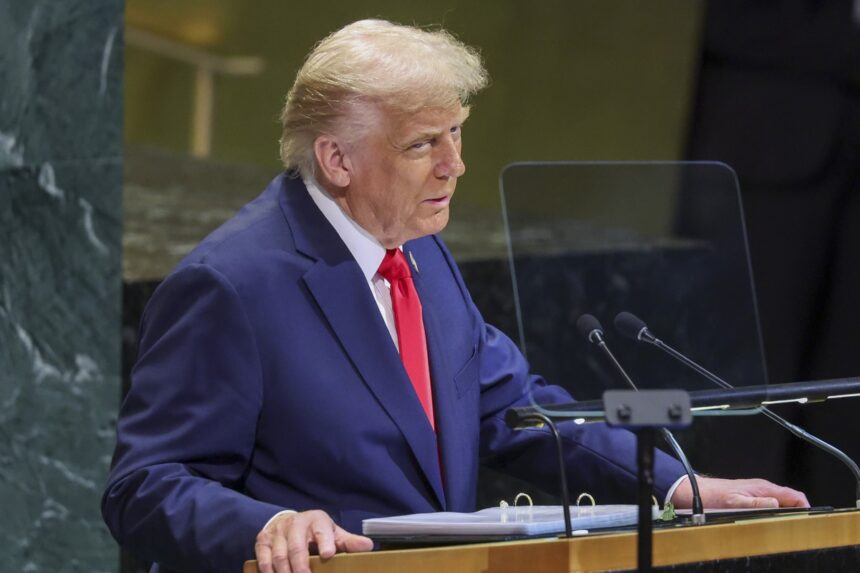U.S. President Donald Trump announced Thursday that he will impose a 100% tariff on imported medicines starting October 1, in addition to new levies on various consumer and manufacturing products.
The measure, as explained by the President, is part of his strategy to reduce the federal deficit and strengthen domestic production, in line with the protectionist policy that has characterized his administration.
A direct hit on drugs
🇺🇸🇪🇺 | Trump affirmed that he will lower “1500%” the price of medicines with his decree that forces pharmaceutical companies to sell them at the lowest selling price worldwide, after revealing that decades ago in the US they were sold 10 times more expensive than in Europe. pic.twitter.com/eLgxqPaF81
– La Derecha Diario (@laderechadiario) August 27, 2025
The announcement has generated great controversy, as for the first time a total tariff of 100% is established for drugs entering from abroad, including essential medicines manufactured in countries such as India, Germany and Canada.
The United States imports more than a third of the medicines consumed nationally, so experts anticipate that the impact on the cost of medicines could be felt immediately in pharmacies and hospitals.
For the Hispanic community, which already faces barriers in accessing health care, the new levies could translate into higher prices for basic treatments, from insulin to antibiotics to medications for chronic diseases.
Other sectors also affected
In addition to drugs, the executive order establishes a 50% tariff on kitchen cabinets and bathroom vanities, 30% on upholstered furniture and 25% on heavy trucks.
These are key products for the construction and remodeling sector as well as for the transportation industry.
The government claims that these taxes are intended to encourage manufacturers to return their production to U.S. territory.
However, private companies and trade associations have warned that costs are likely to be passed directly to the consumer.
Federal Reserve Chairman Jerome Powell recently warned that tariffs are already contributing to rising prices:
“We are beginning to see the costs of imported goods reflected in higher inflation.”
U.S. inflation remains at elevated levels in 2025, and the decision to implement such aggressive tariffs could complicate efforts to stabilize the economy.
Analysts also warn that the move could dampen economic growth as employers still try to adjust to tariffs imposed during August on other industrial and agricultural products.
Political and social reactions
Proponents of Trump’s protectionist policy celebrate the move as a step toward economic independence and manufacturing sovereignty.
They argue that relying on foreign drugs represents a risk to national security and that producing in the United States will generate jobs in the pharmaceutical industry.
Comenzamos a ver que los costos de los bienes importados se reflejan en una mayor inflación
Jerome Powell
On the other hand, medical associations, hospitals and consumer advocacy groups have expressed great concern.
They point out that making drugs more expensive will not only affect millions of patients, but could also increase the financial burden on programs such as Medicare and Medicaid, on which low-income seniors and immigrants rely significantly.
Impact for Hispanic families
For the Latino community in the U.S., which in many cases works in sectors where health insurance is limited or non-existent, price increases in essential medicines can become an additional barrier to access to health care.
Community leaders have begun to organize forums and information campaigns to warn families about the possible increases and explore alternatives, such as health cooperatives or state assistance programs.
With this action, Trump reaffirms his commitment to economic protectionism, even as inflation risks and political criticism grow.
The application of a 100% tariff on medicines sets a historical precedent and places the United States in a confrontational scenario with its main trading partners, which are already evaluating retaliatory measures at the World Trade Organization (WTO).
The outcome of this measure could define not only the direction of White House economic policy, but also the future of health care access for millions of people in the country.
Filed under: Trump imported drugs























